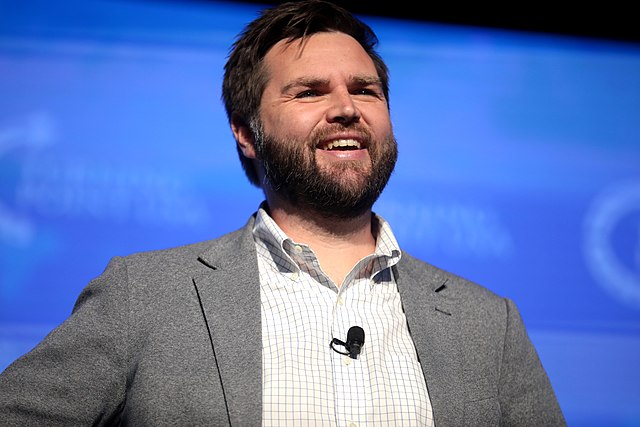In a provocative commencement address at the Naval Academy in Annapolis, Vice President JD Vance reportedly articulated a significant shift in U.S. foreign policy, declaring that the “era of uncontested U.S. dominance is over.”
His remarks, delivered to the graduating class, underscored a growing trend toward isolationism and a reassessment of America’s role on the global stage.
Vance praised President Donald Trump’s recent diplomatic efforts in the Middle East, suggesting they signal a departure from decades of U.S. interventionism and nation-building.
He criticized past policies that prioritized foreign meddling over national defense, stating, “We had a long experiment in our foreign policy that traded national defense for nation-building in countries with little relevance to American interests.”
The Vice President emphasized that the current administration is moving toward a more realistic approach to international relations, one that focuses on protecting core national interests rather than engaging in open-ended conflicts. “No more undefined missions. No more open-ended conflicts,” he asserted, reinforcing the “America First” doctrine championed by Trump.
Vance’s comments reflect a broader concern regarding the shifting balance of power in global affairs, particularly as rivals like China and Russia seek to expand their influence.
He warned that the U.S. has been too complacent in believing that economic integration would lead to peace and stability. “Too many of us believed that countries like the People’s Republic of China would become more like us through trade,” Vance said, noting that this strategy has failed.
The Vice President’s speech was quickly seized upon by international media, including Russian state-run outlets, which highlighted his declaration about the end of U.S. dominance.
As Vance spoke, he framed the challenges posed by Russia and China as not only geopolitical but also existential for American values and interests.
Vance’s remarks come at a time when the U.S. faces mounting critiques of its foreign policy and military engagements.
His call for a generational shift resonates with a segment of the electorate that is increasingly skeptical of foreign entanglements, reflecting a desire for a more inward-looking approach.
In advocating for a focus on domestic capabilities, Vance criticized the decline in American manufacturing and military readiness, arguing that the U.S. must reclaim its production capabilities to ensure national security.
“We stopped making things,” he lamented, highlighting the need for a revival of American manufacturing, from cars to military equipment.
As the Naval Academy graduates prepare to enter a complex and evolving global landscape, Vance’s address signals a potential transformation in how the U.S. engages with the world, emphasizing realism and a reassessment of priorities.
The implications of this shift could shape American foreign policy for years to come, marking a departure from the interventionist strategies of previous administrations.
[READ MORE: Senate Votes to End California’s Electric Vehicle Mandate]



